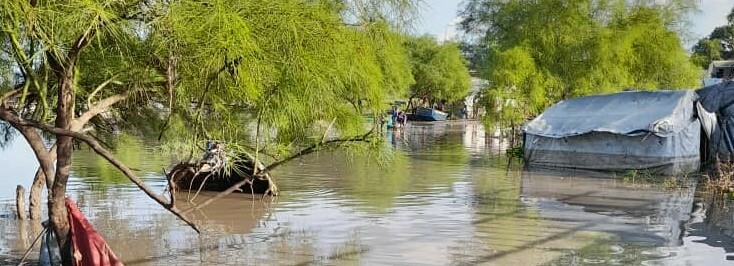About 6,300 floods-stricken residents in parts of Greater Pibor Administrative Area (GPAA) have been left homeless, and without food since last month, local officials said.
The GPAA Relief and Rehabilitation Commission (RRC) director, John Koko Maze, told Radio Tamazuj Friday that the floods caused by the overflow of rivers in Verthet, Pibor, and Likuangole counties, started late last month and is continuing unabated.
“Of Pibor and Likuangole counties, Verthet is the worst hit. All crops have been washed away. Nothing has been left for the residents to feed on,” Koko said. “In those three counties, 1,150 households or 6,325 individuals are displaced.”
The RRC official said the floods took them by surprise and warned that the situation could worsen in the coming month.
“We have been receiving rains but not so heavy to warrant these floods. Residents were shocked that by the overflow of rivers and water coming from eastern side displacing those residents within their counties,” he said. “So, we are calling on aid agencies to provide shelters and food.”
For his part, Joseph Lelimoy, the area’s information minister, said they are preparing to tackle the floods and called on aid agencies to come to their support before the disaster could fully strike.
‘Kengen and Lothila rivers have overflowed, causing floods in Verthet and parts of Likuangole, and people there are affected. In the coming month, we predict the situation will be comparable to 2019 because, as we speak, floods are advancing to the rest of GPAA, and torrential rains are continuing. In Pibor town, people are vacating the market area to higher grounds near the government headquarters in anticipation of the floods while the entire residents of Greater Pochalla are stranded in floodwaters,” he said.
A Pibor town resident, Zechariah Anyeboi, said they have relocated because of the floods.
“Parts of the Pibor market are affected by the floods but is not much. People are relocating to the environs of police headquarters because floods are coming from Verthet and Gumuruk. Now, prices are very expensive because we only receive goods through airstrips,” he said.




